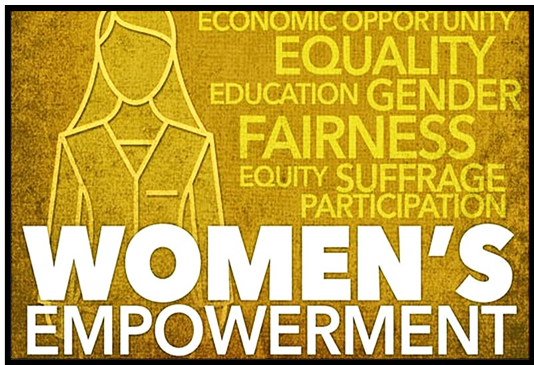THE DELICATE BALANCE OF GENDER ROLES
Syllabus:
- GS-2 – Women -part of government’s role in welfare of vulnerable sections ,SHGs
Focus :
- March 8 being celebrated as the International Women’s Day every year and the analysis of those events from gender perspective
- Gender pay gap report released by World Economic Forum.
Source-IE
Introduction to Women’s Day Events:
- March brings a flurry of Women’s Day events, inundating inboxes with invites, discounts, and awards.Organizations make efforts to celebrate and recognize their women employees, often through gifts and celebrations.
Observations at Women’s Day Events:
- Women-centric events typically feature successful women from the corporate world, entrepreneurs, and occasionally, celebrities.
- Men are noticeably absent from the stage at many of these events, prompting questions about their exclusion.
Focus of Discussions:
- Talks and panel discussions revolve around women’s needs and desires for professional success, often neglecting their roles outside the workplace.
- Motherhood, marriage, and other personal roles are sometimes portrayed as obstacles to professional advancement.
Perspective on Employer-Employee Relationship:
- Concerns are raised about employers’ perspectives, especially regarding hiring and supporting women after maternity breaks.
- Balancing legal obligations with business constraints is highlighted as a challenge for small businesses and startups.
Addressing Gender Pay Gap:
- Despite discussions on the gender pay gap, few solutions are proposed or actions mentioned to rectify it.
- Suggestions focus on women being more assertive in negotiating salaries, with little emphasis on policy changes.
Impact of Feminism and Gender Roles:
- Women are navigating a complex web of expectations, striving to fulfill traditional and modern gender roles simultaneously.
- The pressure to excel professionally while maintaining traditional responsibilities can be overwhelming.
| The Maternity Benefits (Amendment) Act 2017:
· It changed Section 5 of the previous Act to permit paid leave for 26 weeks following childbirth, but only for biological mothers. · A maternity benefit period of 12 weeks from the moment the child is turned over to the mother is entitled to adoptive or surrogate mothers who lawfully adopt a child under three months old, according to Section 5(4) of the amended legislation. |
Consumerism and Women’s Empowerment:
- Financially independent women are often targeted as high-potential consumers, perpetuating consumerism and societal pressures.
- Women contribute to this cycle by participating in consumer-driven events and activities.
Reflections on Name Change Protest:
- Some women protest their exclusion by changing their names to reflect being “+1” with their spouses, highlighting the issue of recognition.
- The tradition of retaining maiden names is traced back to ancient Indian culture, contrasting with recent practices of name changes.
- When women say with pride they did not change their surname after marriage, they are keeping alive an old tradition. Sita is never addressed as Mrs Ram. She is always Janaki and Maithili, the daughter of the father and the land.
Acknowledging Support Systems:
- Successful women often attribute their success to the support of men in their lives, but this acknowledgment may be lacking in public forums.
- Encouraging men’s support for women’s success can inspire positive behavior and gender balance.
Importance of Gender Balance:
- Gender balance is portrayed as essential for nurturing families and fostering companionship.
- Acknowledging the contributions of both men and women is emphasized for achieving balance in personal and professional spheres.
Source:Indian Express
Mains Practice Question :
GS-2
Suggest measures to promote inclusivity, acknowledge support systems, and achieve gender balance in various aspects of life.
GS4:
You are the HR manager of a multinational company that annually hosts Women’s Day celebrations to recognize the achievements of women in the workplace. However, you’ve noticed a recurring pattern in these events where discussions primarily revolve around professional success, overlooking the broader roles and responsibilities of women in society.
Employees, especially women, have expressed concerns about the narrow focus of these events and the lack of acknowledgment for the support provided by men in their lives. Additionally, there is a growing sentiment that these celebrations perpetuate gender stereotypes and fail to address underlying issues such as the gender pay gap and work-life balance.
As the HR manager, you are tasked with organizing this year’s Women’s Day event. How would you design the event to ensure inclusivity, promote meaningful discussions on gender equality, and address the concerns raised by employees? How would you navigate the delicate balance between celebrating women’s achievements while also recognizing the contributions of men and fostering a more inclusive workplace culture?”




